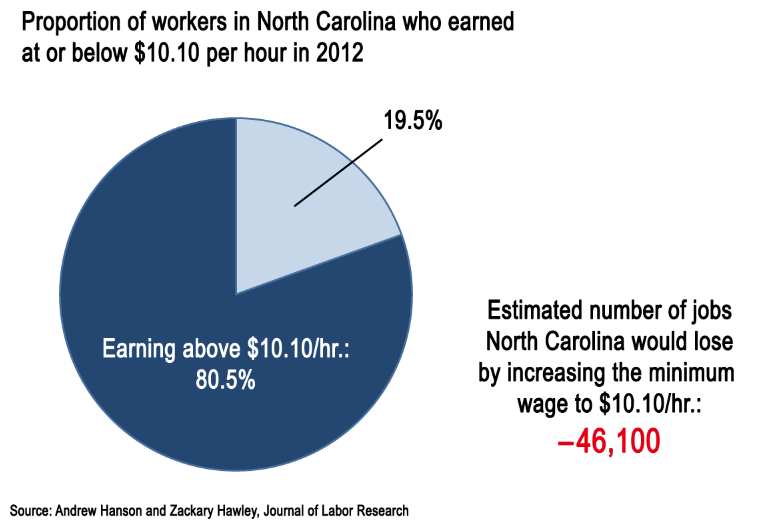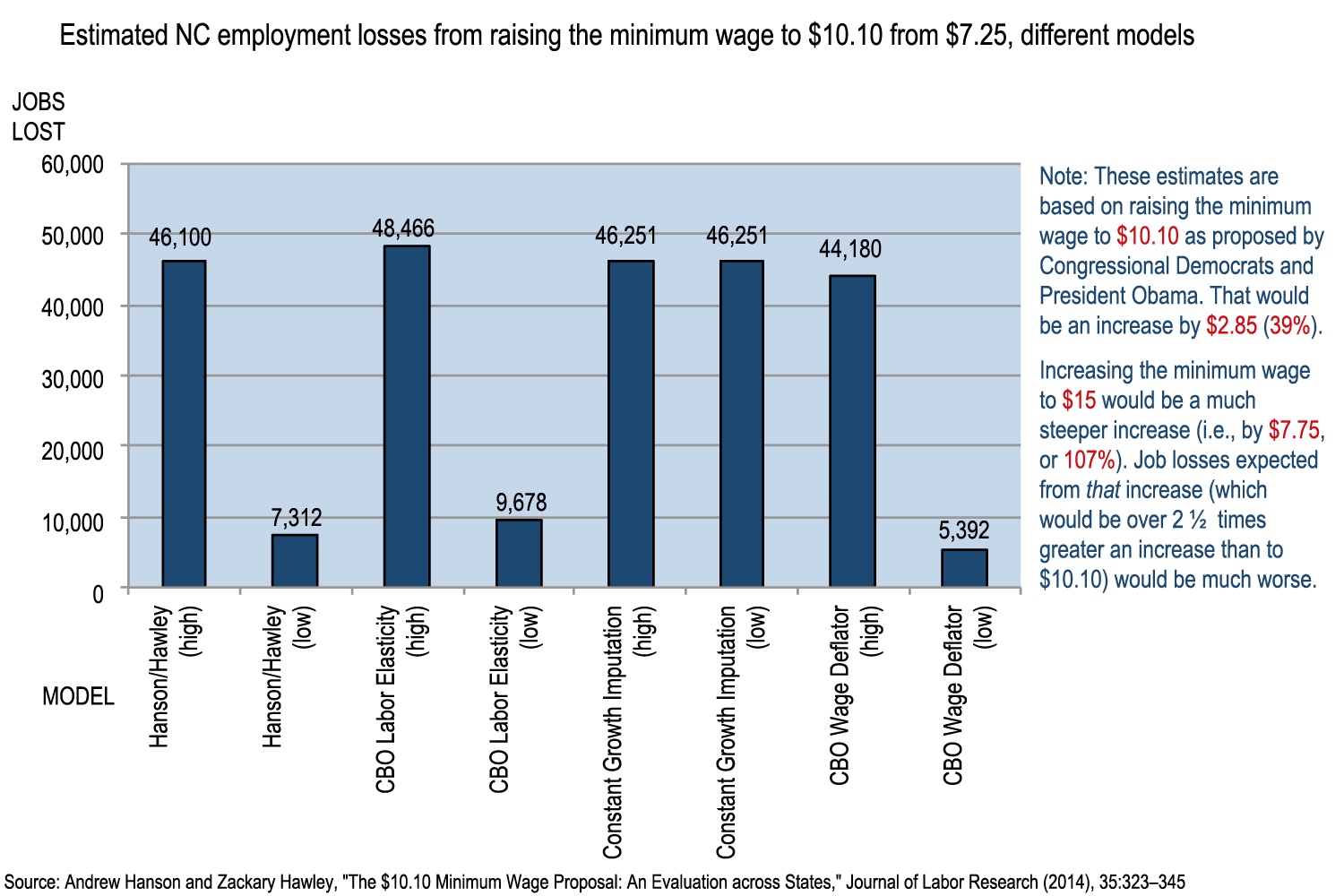Regarding low-wage work in North Carolina:

How many jobs would be lost by making it more expensive to hire low-wage labor is a research question; what isn’t a question is that thousands upon thousands of jobs would be lost, not gained. Skyrocketing the minimum wage over double its current rate to $15 per hour would disemploy an estimated 334,000 North Carolinians.
The Winston-Salem Journal, however, has found an outlier:
“Raising the state’s minimum wage will boost businesses and the state’s economy without hurting overall employment,” Freyer said. “It creates more customers, more sales and bigger profits.”
Such a position is, as the Journal discusses, counter to this:
The main claims touted by conservative legislators and economists is that a higher minimum wage leads to fewer available jobs, lower youth and adult employment levels, employers requiring greater skills for entry-level jobs, and small businesses having a harder time staying in business.
And in fact it’s not just conservative economists make those claims. That is far and away the mainstream position among economists. It’s one of the items about which economists are in greatest agreement. Even liberal advocates emailing Secretary Hillary Clinton behind the scenes warn her a big hike will be bad, as the Washington Examiner reported.
The idea that forcing a significant increase in labor costs won’t harm employment at all and will even help businesses (and therefore boost the state’s economy) requires a unique new modeling of the economy. Hitherto the vertical demand curve has been a thing of myth or theory.
It is sometimes theorized to exist for lifesaving medicines, like insulin for diabetics, but even there economists posit that higher prices would induce diabetics to begin rationing insulin.
Here, however, the idea has to be that low-wage workers are even more valuable to employers than insulin to diabetics. Which if you think about it (to be a liberal: don’t), would make you wonder why (a) businesses aren’t buying more of them now, why (b) the employers aren’t bidding their services that much higher, and why (c) advocates for workers aren’t openly promoting far, far greater spikes in the minimum wage than they currently are.
A cruel hoax
It’s bad enough to try to get people to think that forcing a big increase in the minimum wage will “lift everyone,” as The News & Observer’s editors once wrote.
What’s worse, however, is that the lost jobs wouldn’t be randomly distributed. The disemployed would tend to be the least skilled, the poorest, the least educated. That is, the ones who most need the work, and the ones we’d think we were helping the most.



